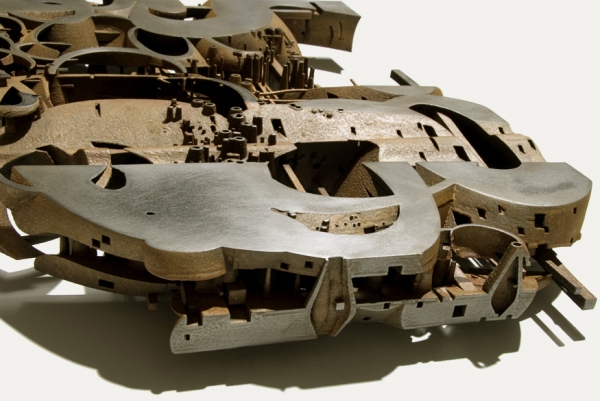If you’re exploring just the level of organizational types because that’s usually what we do—we organize the world and we literally concretize it. We bring a certain order. That order is a response to how we locate ourselves in the world in philosophical terms—in the total sense; all the disciplines….
I’m looking for…or I am challenging…or I am myself searching for what that means with those organizational forms. I am looking for something that I see as more contemporary and that is connected to the 21st century thinking and it seems as though it’s moving from the mechanical to the biological. There is a thrust that is becoming clear to us in terms of where we look for our ideas, right? We are paralleling in terms of the modern notion of who we are.
I’m looking for something that is discursive, that is understandable, that doesn’t depend totally on personal facility, meaning it’s private—because these are collective projects. I work with another person that is actually drawing the specific nature of the model.
And I would have said that the formation of these are first and foremost the operational strategy, which is the most powerful thing. Then, after that, it’s some combination of my critique; my development of that process and my engagement with the person actually mechanically putting them together. So it is a very complicated, already collective process of even how they come together and it’s not by me at all.
